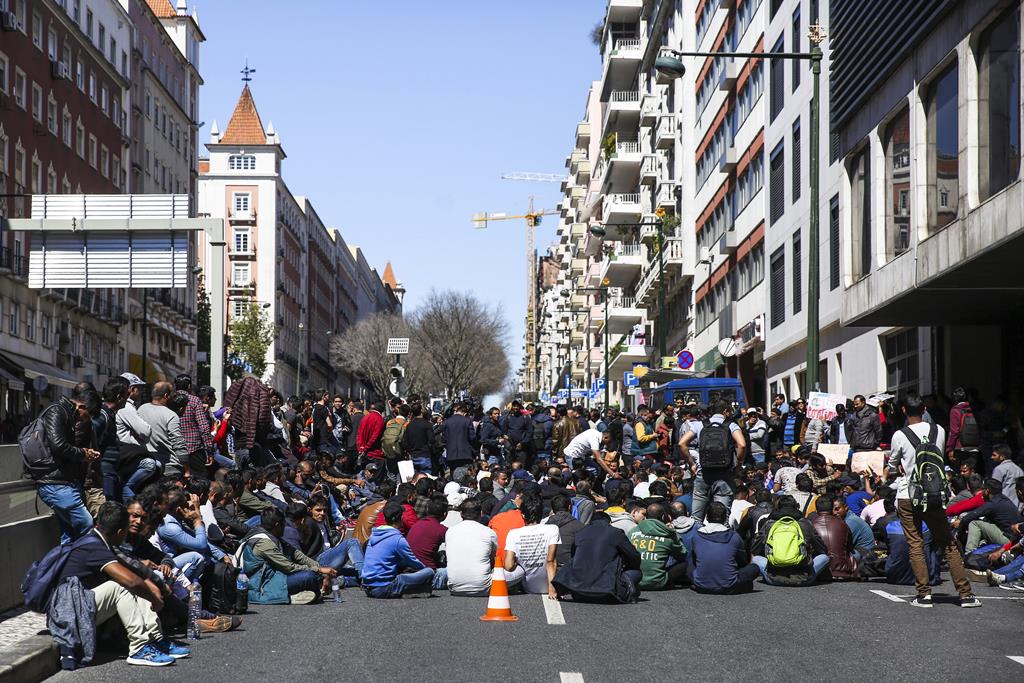Researcher warns ‘incompatibility with EU legislation’ could fuel populist speeches
Researcher Ana Rita Gil has warned that part of Portugal’s foreigners’ law is in “contradiction with the European Union”, allowing those who are here illegally to be regularised, which could fuel populist anti-immigrant speeches in the electoral campaign.
“These articles, each with their own requirements, allow a person to enter illegally, with a tourist visa and without the necessary documents, and then stay, work and, after a year with discounts, apply for regularisation,” the professor at Lisbon Public Law (Research Centre for Public Law at the Faculty of Law of the University of Lisbon) tells Lusa.
Because of this legal framework, she warned: “I see a discourse beginning to emerge among the population in which the Portuguese are reacting to the exponential increase in immigration.
“Of course, it is said that immigrants contribute a lot to social security,” but “housing, hospitals and public services are not infinite” and “material reception capacities are stretched thin.
“I think this is going to be an election campaign issue“, she told Lusa. “I am a little afraid that this will lead to a rise in far-right or more extremist discourses”.
Article 88 of the law on foreigners allows residence permits for citizens of other countries who have entered Portugal legally through an expression of interest, as long as they have “an employment contract under the terms of the law and are registered with social security”.
The next article deals with “residence permits for self-employed professionals or entrepreneurial immigrants”.
These two articles allow any foreigner who has entered Portugal as a tourist to apply for a residence permit provided that, within the period of the visa, they have started working for a company in Portugal.
This situation is, according to several experts, the reason for the high volume of pending regularisation processes, estimated at 300,000.
In the current law, “we created the work-seeker’s visa to try to encourage people to come legally straight away, but then we don’t remember that our consulates don’t have enough staff and aren’t able to respond” to requests, so “people end up preferring to continue coming illegally”, said the researcher.
And then, in Portugal, “people are subject to situations of exploitation“, so the State’s priority should be “to reinforce incentives to come legally straight away” instead of entering illegally.
As part of the European Union, “Portugal doesn’t have a lot of freedom to do much” in the law on foreigners, the lawyer pointed out, considering that “article 88 and article 89 were a peregrine creation of the Portuguese State”, completely in “opposition to the rest of the European Union, which “has been saying since 2008 that there are no mass regularisations”.
She added the country is also going “against the grain” with its CPLP [Community of Portuguese Langauge Countries] authorisation. “We don’t really have the competence to create residence permits that aren’t recognised in the Schengen area“.
Because “we can’t invent visas on our own”, she summarised – meaning, the country should not be able to, but in effect has.
The articles (88 and 89) go against “the history of decisions by the European Council”, which has made recommendations against this type of measure that essentially lures immigrants.
This subject is indeed one that is coming more and more to the fore as the number of immigrants living in precarious conditions has started becoming a regular talking point.ND
Source material: Lusa




















